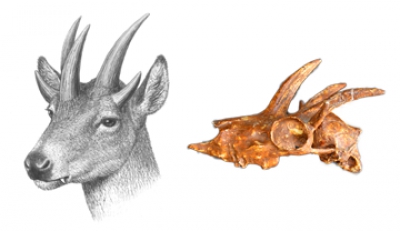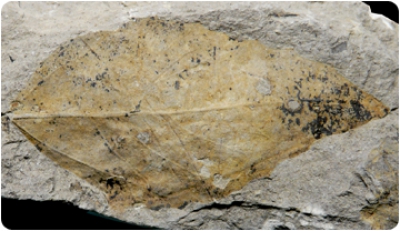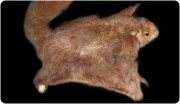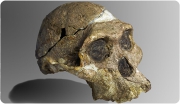
Sala de premsa (404)
Adaptarse o morir: la dieta como elemento clave en la evolución de los mamíferos en las islas
13 Jul 2016
57585 times
Un estudio publicado en la revista Scientific Reports por el paleontólogo Daniel DeMiguel del Institut Català de Paleontologia Miquel Crusafont (ICP) analiza el papel de la dieta en el origen y diversificación de las especies que llegan a una isla por primera vez. El artículo se centra en la evolución…
Un artículo publicado por el paleobotánico Josep Marmi, investigador del Institut Català de Paleontologia Miquel Crusafont (ICP), analiza como las plantas con flor colonizaron los ambientes de finales del Cretáceo. El estudio define diferentes ambientes donde se observa como este grupo de plantas competía en los antiguos ecosistemas dominados por…
Una exposición conmemora los cien años de excavaciones de dinosaurios en Cataluña
10 Jun 2016
63561 times
Con motivo del centenario del primer hallazgo de restos de dinosaurio en Cataluña, la Asociación geoparque Conca de Tremp-Montsec, el Institut Català de Paleontologia Miquel Crusafont (ICP) y el Museo de la Conca Dellà han diseñado una exposición itinerante que se ha presentado esta mañana en el Ayuntamiento de Talarn,…
More than 300 years after its extinction, an international team of researchers has published the first three-dimensional online atlas of the skeleton of this flightless bird, an icon among extinct species in recent human history. Despite its presence in popular culture, little is known we know about the anatomy of…
Researchers from the Universitat Autònoma de Barcelona (UAB), the Miquel Crusafont Catalan Institute of Palaeontology (ICP), and the Jaume Almera Institute of Earth Sciences (CSIC), working in the Manyanet Valley (Pallars Jussà, Lleida), have identified various tracks made by tetrapod animals between 280 and 290 million years ago, which makes…
The analysis of a dinosaur trackway from the Barranco de la Canal (La Rioja) site reveals an injury in the left foot of an ornithopod dinosaur. The animal performed an abnormal gait probably due to the pain caused by the pathology. The investigation was led by researchers at the ‘Institut…
Pliobates cataloniae, a new primate species at the root of the tree of extant hominoids
29 Oct 2015
15618 times
A team of researchers from the ‘Institut Català de Paleontologia Miquel Crusafont’ describes in the Science magazine the new genus and species, Pliobates cataloniae, based on a skeleton recovered from the landfill of Can Mata (els Hostalets de Pierola, Catalonia, Spain). The fossil remains belong to an adult female individual…
Five species of flying squirrels that coexisted in the Vallès-Penedès basin during the Miocene, about 9.7 million years ago, have been described in the site known as Can Llobateres (in Sabadell, Catalonia). The finding, headed by Isaac Casanovas, researcher at the Institut Català de Paleontologia Miquel Crusafont , has been…
The jury awarded the prize to this American researcher at the proposal of the Institut Català de Paleontologia Miquel Crusafont and the Department of Ecology of the Universitat de Barcelona to recognize "its comprehensive influence for nearly five decades in a generation of ecologists". Ricklefs footprint in scientific thinking is…
Science publishes today a technical comment led by Sergio Almécija, paleontologist at the Institut Català de Paleontologia Miquel Crusafont (ICP). In this article, the authors refute the arguments previously published by a team at the University of Kent in the same journal, who attributed to the species Australopithecus africanus the…




















